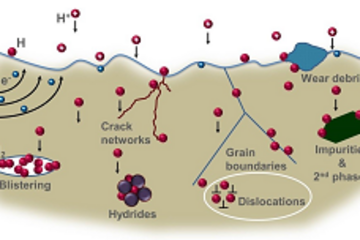All genres
41.
Poster
The Effective Surface pH during Reactions at the Solid/Liquid Interface. 63rd Annual Meeting of the International Society of Electrochemistry, Prague, Czech Republic (2011)
42.
Poster
The Particle Size Effect in Electrocatalysis of Fuel Cell Reactions. Electrochemistry 2010, Bochum, Germany (2010)
43.
Poster
Stability of Pt alloy high surface area catalysts. International Conference on Materials for Energy, Karlsruhe, Germany (2010)
44.
Thesis - PhD
Degradation phenomena and design principles for stable and active Pt/C fuel cell catalysts. Dissertation, Fakultät für Chemie und Biochemie, Ruhr-Universität Bochum, Bochum, Germany (2013)











